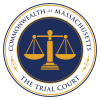- Trial Court Law Libraries

Article 8 (1780)
In order to prevent those, who are vested with authority, from becoming oppressors, the people have a right, at such periods and in such manner as they shall establish by their frame of government, to cause their public officers to return to private life; and to fill up vacant places by certain and regular elections and appointments.
Precedents, Following Law, and Quotations
The Charters and General Laws of the Colony and Province of Massachusetts Bay, edited by Nathan Dane, Joseph Storey and William Prescott (1814),” General Laws and Liberties of Massachusetts Bay”, Chapter 40, Section 4 “Act Relating to Elections” (1641), p.107:
“It is declared by this court, to be the constant liberty of the freemen of this jurisdiction, to choose yearly at the court of election out of the freemen, all the general officers of this jurisdiction, and if they please to discharge them at the court of election, by way of vote, they may do it without shewing cause; but if at any other general court, we hold it due justice that the reason thereof be alleged and proved. By general officers we mean our governor, deputy governor, assistants, treasurer, major general, admiral at sea, commissioners for the United Colonies, secretary of the general court, and such others as are, or hereafter may be of liked general nature.”
Embedded in the Massachusetts “frame of government”, citizens have the right to recall public officers through the ballot box, in the case of elected officials, or through other means built into the statutes. For example, judges may be removed by the Commission on Judicial Conduct, the Governor, with the consent of the Governor’s Council, or by impeachment and conviction by the Legislature. Other states have adopted other recall measures.
Elizabeth E. Mack, “The Use and Abuse of Recall: A Proposal for Legislative Recall Reform”, 67 Nebraska Law Review 617 (1988), 622:
“Modern recall, along with its sisters, the referendum and initiative, form the great triumvirate of popular government. The reformers of the Progressive Era initiated the three reforms at the local government level because they believed that government representatives failed to serve the public as mandated by the Constitution. . . it was true that local governments of the late nineteenth and early twentieth century America seemed controlled not by the electorate, but by a few large corporations of the newly industrialized United States. Against this backdrop, the great triumvirate was conceived to reform the political process by bringing ‘the people’ back into the process of lawmaking.”
Oregon Recall of Public Officials, Article 2, Section 18 (1), Oregon Constitution, added by constitutional amendment (1908):
“Every public officer in Oregon is subject, as herein provided, to recall by the electors of the state or of the electoral district from which the public officer is elected.”
Secretary of State, Elections Division, State of Oregon, Recall Manual, Rev. 05/2022, p. 4:
“The Oregon Constitution allows any non-federal public office holder, whether appointed or elected, to be recalled from office before the term has expired.”
